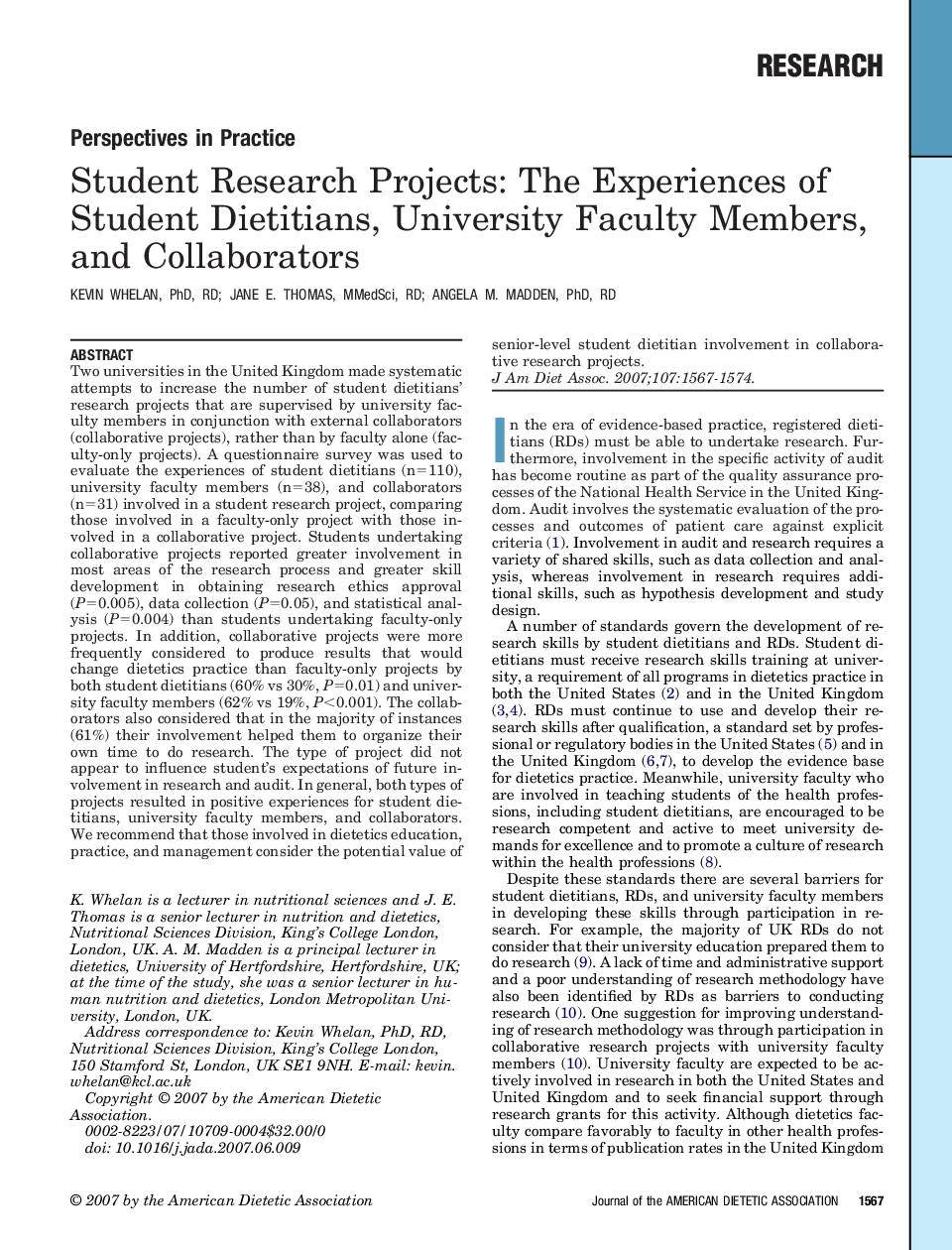| Article ID | Journal | Published Year | Pages | File Type |
|---|---|---|---|---|
| 2658472 | Journal of the American Dietetic Association | 2007 | 8 Pages |
Two universities in the United Kingdom made systematic attempts to increase the number of student dietitians’ research projects that are supervised by university faculty members in conjunction with external collaborators (collaborative projects), rather than by faculty alone (faculty-only projects). A questionnaire survey was used to evaluate the experiences of student dietitians (n=110), university faculty members (n=38), and collaborators (n=31) involved in a student research project, comparing those involved in a faculty-only project with those involved in a collaborative project. Students undertaking collaborative projects reported greater involvement in most areas of the research process and greater skill development in obtaining research ethics approval (P=0.005), data collection (P=0.05), and statistical analysis (P=0.004) than students undertaking faculty-only projects. In addition, collaborative projects were more frequently considered to produce results that would change dietetics practice than faculty-only projects by both student dietitians (60% vs 30%, P=0.01) and university faculty members (62% vs 19%, P<0.001). The collaborators also considered that in the majority of instances (61%) their involvement helped them to organize their own time to do research. The type of project did not appear to influence student’s expectations of future involvement in research and audit. In general, both types of projects resulted in positive experiences for student dietitians, university faculty members, and collaborators. We recommend that those involved in dietetics education, practice, and management consider the potential value of senior-level student dietitian involvement in collaborative research projects.
